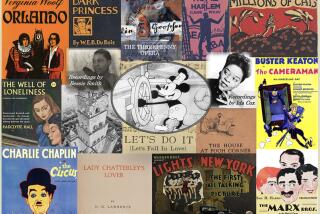Trying to Fill a Hole in Cyberspace : U.N. summit tackles problem of copyright violation on the Internet
- Share via
Born in 1969 as ARPANET, a network of computers linked to promote the free exchange of academic ideas, the Internet in the mid-1980s became a venue for the free exchange of enthusiasms, whether about baseball, “Star Trek” or the Beatles. Often these exchanges of material involved copyright violations, but creative artists and their producers tended to look the other way. Until now.
In the past few years the Internet has evolved from a conduit for e-mail used by a few thousand cyberwonks to a mass medium in which 40 million people worldwide can send and receive feature-length movies, books and CD-quality music. Artists accustomed to raking in royalties when their work is used in any medium are now finding themselves virtually uncompensated and unprotected in this new global marketplace. Copies of Madonna’s latest song, a computer spreadsheet or a periodical can all be duplicated and distributed at the click of a mouse.
The relation of copyrights and the Internet is a mess, and delegates from 162 nations are gathered at a U.N. summit in Geneva today for the second of three weeks of negotiations aimed at revising international copyright laws. The Clinton administration’s delegation, led by Bruce Lehman, chairman of the U.S. Patent and Trademark Office, hopes to forge an agreement by Christmas.
While many proposals are on the table, Lehman should sign on only to those necessary to ensure that works disseminated over the Internet enjoy the same protections afforded to works transmitted over other media. In some cases, existing copyright laws are easily applicable to the Internet. For instance, when Mercedes-Benz uses the late Janis Joplin’s hit song “Oh Lord, Won’t You Buy Me a Mercedes-Benz,” it’s clear that royalties have to be paid to Joplin’s estate, whether Mercedes is promoting its cars on TV or the World Wide Web.
In other cases, copyright laws will need to cover new ground. For instance, some publishers argue that access providers like America Online should be held liable when one of their users illegally posts copyrighted material on the Internet. Access providers, however, cannot be expected to monitor all of their subscribers’ transmissions, for in addition to being prohibitively expensive, such monitoring would violate privacy rights. A sensible compromise would hold access providers liable in certain circumstances: e.g., if they failed to inform subscribers that they were bound by existing copyright laws or if they failed to remove infringing material within a specified period.
Lack of consumer representation is one of the biggest problems with the Geneva conference. Another is the Clinton administration’s failure to fully consult with Congress before heading off to Geneva. Unless the administration steers clear of hastily written regulations and stands up for consumer concerns, the treaties it signs in Geneva will have little chance of earning the congressional support they will need to make it into law next year.
More to Read
Sign up for Essential California
The most important California stories and recommendations in your inbox every morning.
You may occasionally receive promotional content from the Los Angeles Times.













